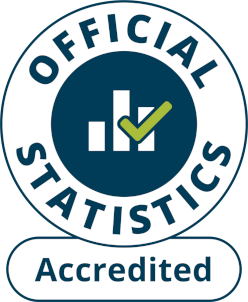Early years foundation stage profile results: 2010 to 2011
Results of the 2011 early years foundation stage profile (EYFSP) assessments at a national and local-authority level.
Documents
Details
Reference Id: SFR28/2011
Publication Type: Statistical First Release
Publication data: Local Authority data
Local Authority data: LA data
Region: England
Release Date: 11 November 2011
Coverage status: Final
Publication Status: Published
The release includes the percentage of children achieving each point on the 13 EYFSP assessment scales, the percentage working securely in each assessment scale and the percentage achieving a good level of development. The release also includes the percentage of children achieving each individual scale point for each scale of the EYFSP. This data is currently submitted on a voluntary basis by local authorities.
This statistical release was published on 11 November 2011 and replaces the release of 20 October 2011.
The information included in this publication is sourced from the early years foundation stage profile census. Further guidance and technical specifications for the census is available.
The key points from this release are:
- The majority of children (ranging from 67% to 91%) continue to work securely within (achieving a total of 6 points or more, see background note 4) the early learning goals, in each of the 13 assessment scales. The percentage of children working securely within has increased in 11 scales compared with 2010 and remained the same in the remaining 2.
- Since the implementation of the statutory EYFS profile in 2009, there has been an increase in the percentage of children working securely across all scales, with the largest increase 5 percentage points which was seen in 3 scales (communication, language and literacy - ie linking sounds and letters and writing - and problem solving, reasoning and numeracy - ie calculating).
- The assessment scales with the highest percentage of children working securely within the early learning goals were: physical development (91%) and personal, social and emotional development: dispositions and attitudes (91%). The assessment scale with the lowest percentage of children working securely within the early learning goals was: communication, language and literacy: writing (67%).
- The assessment scale with the highest percentage of children working towards (achieving a total of 1 to 3 points) the early learning goals was communication, language and literacy: writing (10%). The assessment scale with the lowest percentage of children achieving 1 to 3 points was personal social and emotional development: dispositions and attitudes (1% - table 1).
- The assessment scale with the highest percentage of children working beyond (9 points) the early learning goals was problem solving, reasoning and numeracy: numbers as labels and for counting (15%). The scales with the lowest percentage of children achieving 9 points are knowledge and understanding of the world and creative development with (3% - table 1).
- Girls continue to achieve at a higher level in all assessment scales compared to boys with the largest gap being in writing.
- The percentage of children achieving a good level of development in 2011 was 59% compared to 56% in 2010.
Chris Noble
01325 735421
